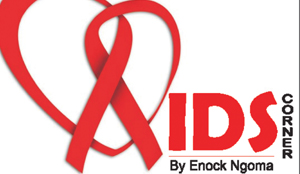 THIS week, I continue with tips on HIV prevention and treatment and I look at how HIV is spread. HIV is spread through contact with certain body fluids from a person infected with HIV: Blood, Semen, Pre-seminal fluids, Rectal fluids and Vaginal fluids.
THIS week, I continue with tips on HIV prevention and treatment and I look at how HIV is spread. HIV is spread through contact with certain body fluids from a person infected with HIV: Blood, Semen, Pre-seminal fluids, Rectal fluids and Vaginal fluids.
The spread of HIV from person to person is called HIV transmission.
HIV is spread mainly by having sex or sharing drug injection equipment, such as needles, with someone who has HIV.
HIV can also pass from an HIV-infected woman to her child during pregnancy, childbirth (also called labour and delivery), or breastfeeding. This spread of HIV is called mother-to-child transmission of HIV.
In the past, some people were infected with HIV after receiving a blood transfusion or organ transplant from an HIV-infected donor. Today, this risk is very low because the supply of donated blood and organs is carefully tested.
You can’t get HIV by shaking hands with, hugging, or closed-mouth kissing a person infected with HIV. And you can’t get HIV from contact with objects such as toilet seats, doorknobs, or dishes used by a person infected with HIV.
How can I reduce my risk of getting HIV?
Anybody can get HIV, but you can take steps to protect yourself from HIV infection.
Get tested and know your partner’s HIV status. Talk to your partner about HIV testing and get tested before you have sex.
Have less risky sex. Oral sex is much less risky than anal or vaginal sex. Anal sex is the most risky type of sex for the spread of HIV.
Use condoms. Use a condom every time you have vaginal sex.
Limit your number of sexual partners. If you have more than one sexual partner, get tested for HIV regularly. Get tested and treated for sexually transmitted infections (STIs), and insist that your partners do, too. Having an STI can increase your risk of becoming infected with HIV.
Talk to your health care provider about pre-exposure prophylaxis (PrEP). PrEP is an HIV prevention method that involves taking an HIV medicine every day.
PrEP is intended for people who don’t have HIV but who are at high risk of sexually transmitted HIV infection. PrEP should always be combined with other prevention methods, including condom use.
Don’t inject drugs. But if you do, use only sterile drug injection equipment and water and never share your equipment with others.
I am HIV positive but my partner is HIV negative. How can I protect my partner from HIV?
Take HIV medicines daily. Treatment with HIV medicines (called antiretroviral therapy or ART for short) helps people with HIV live longer, healthier lives.
ART cannot cure HIV infection but it can reduce the amount of HIV in the body. Having less HIV in your body will reduce your risk of passing HIV to your partner during sex. For added protection, you can also talk to your partner about taking PrEP.
To protect your partner, use condoms correctly every time you have sex. Even if you are taking HIV medicines, remember it’s still important to use condoms.
If you inject drugs, don’t share your needles, syringes, or other drug equipment with your partner.
Are HIV medicines used in other situations to prevent HIV infection?
Yes, HIV medicines are also used for post-exposure prophylaxis (PEP) and to prevent mother-to-child transmission of HIV.
Post-exposure prophylaxis (PEP)
PEP is the use of HIV medicine to reduce the risk of HIV infection after a possible exposure to HIV. PEP may be used, for example, after a person has sex without a condom with a person who is infected with HIV or after a healthcare worker is accidentally exposed to HIV in the workplace. To be effective, PEP must be started within 3 days after the possible exposure to HIV.
Prevention of mother-to-child transmission of HIV
Pregnant HIV-infected women take HIV medicines during pregnancy and childbirth to reduce the risk of passing HIV to their babies. Their newborn babies also receive HIV medicine for six weeks after birth. The HIV medicine reduces the risk of infection from HIV that may have entered a baby’s body during childbirth. HIV-infected women should not breastfeed their babies. Baby formula is a safe and healthy alternative to breast milk.
My colleague who asked me a question on latest methods of HIV prevention as discussed at the recent Canada HIV conference, I hope this answers your concerns but since you specifically asked on the outcome of the Canada conference, I hope to respond next week after some research.
For comments write to me: knoxngoma@gmail.com or call or text +260955883143






